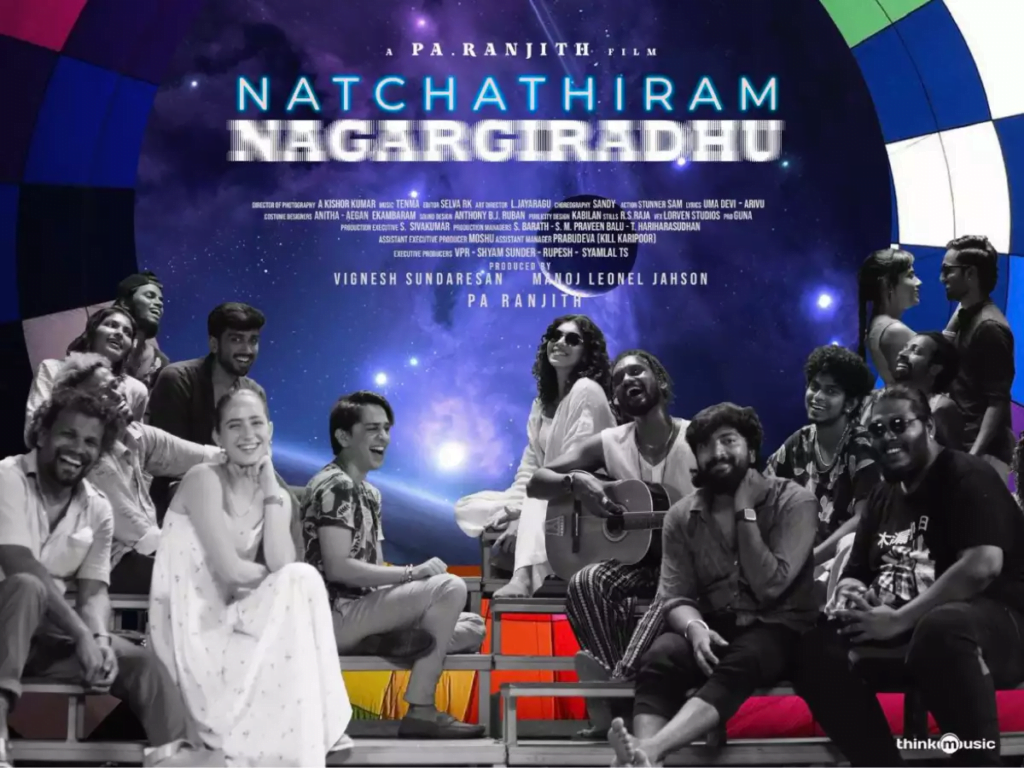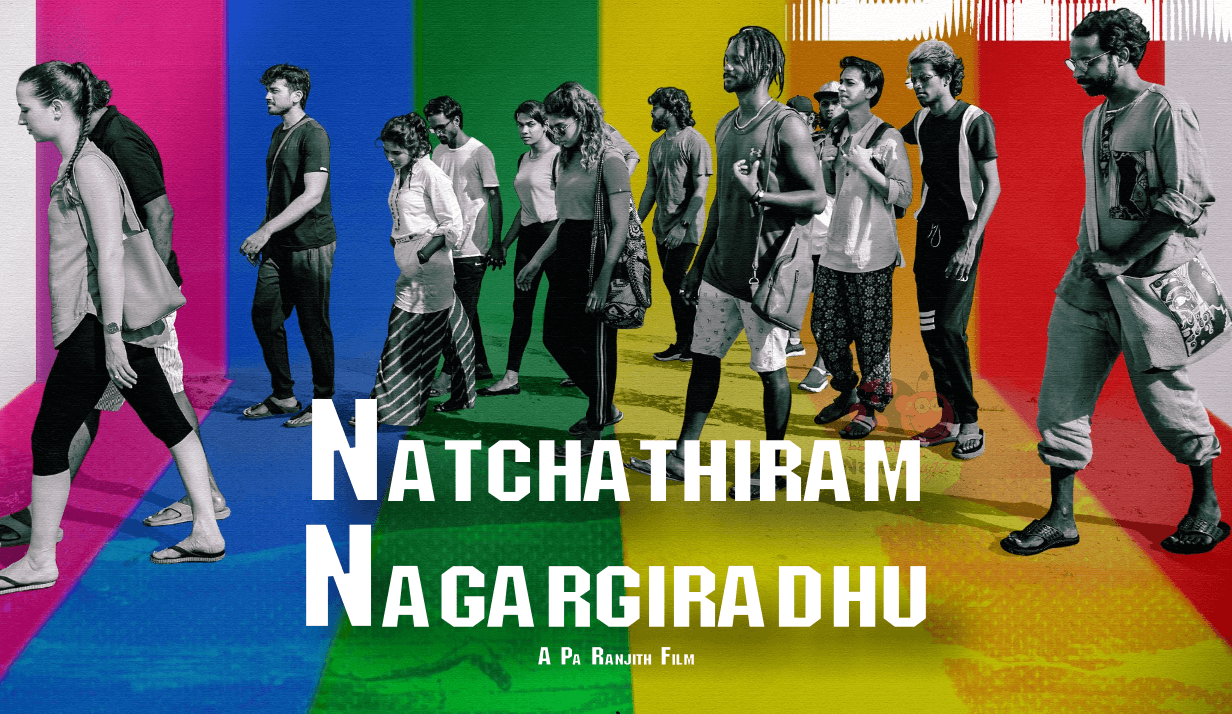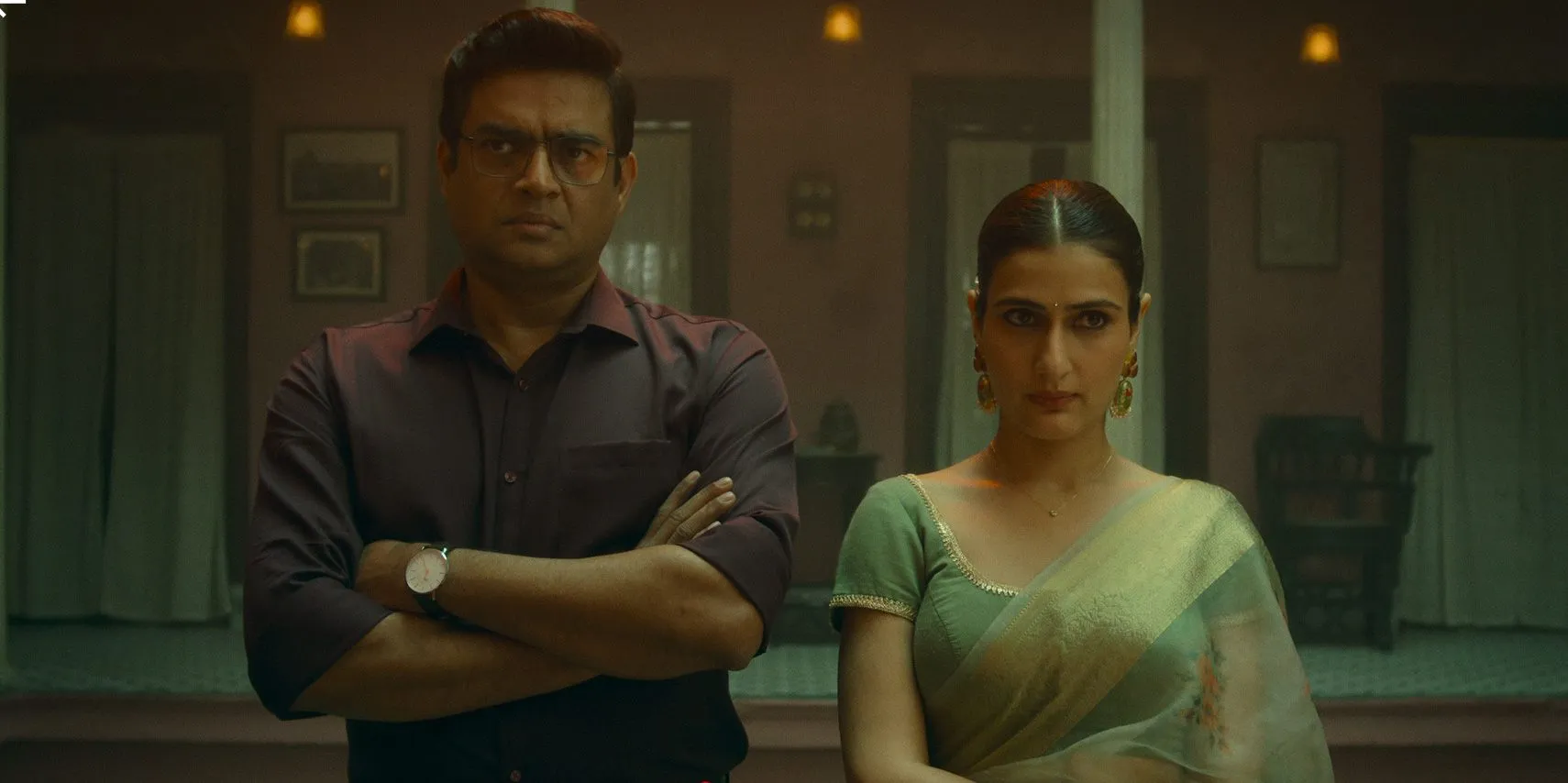Indian cinema has always been obsessed with ‘love stories’. It portrays love as eternal, unabated, serene-an emotion that knows no boundaries. One could only wish that love would be as simple as it appears on the screen.
Rather, love is messy, turbulent, complex, and most importantly, it is restricted by boundaries of caste, religion, race, class, and gender. Pa Ranjith’s recent film Natchathiram Nagargiradhu (2022) (literal meaning: the star is moving) is a timely and much-needed intervention that undertakes this task of puncturing the romanticised, almost divine portrayal of love on-screen to argue that love is indeed ‘political’.
Natchathiram Nagargiradhu is based in Pondicherry and begins with the disturbed love relationship of a young woman Rene (Dushara Vijayan) and Iniyan (Kalidas Jayaram) but certainly does not end at it. Rene is an independent and strong-headed Dalit woman, always followed by the shadow of her caste identity wherever she goes.
The duo works together at a troupe that hosts artists from different castes, gender, religions, and sexual identities. As the story builds itself in the beginning, one sees the genius of the storyteller Pa Ranjith with his highly sensitive cinematic lens, breaking several social norms, one scene at a time.
It is often believed that certain aspects of people’s lives are personal (and intimate) and therefore, remain outside the domain of the ‘political’ and love is certainly considered to be one such aspect. No matter how many couples are ostracised, harassed, or even killed every single day in the name of ‘honour’, people don’t seem to take much pain to understand what the politics of love is all about.
In Natchathiram Nagargiradhu, the troupe also tries to grapple with the same issue, while the members, along with the director Subeer (Regin Rose) discuss the theme for their upcoming play. They discuss love, and what it exactly means. This very thought becomes the focal point around which the film knits itself.
In a bid to represent how society reacts to progressive attempts made at dismantling the existing hierarchies, the climax is reached by the mayhem created by a faceless, nameless individual played by Shabeer Kallarakkal as a came,o who calls himself the protector of traditions and culture of the society
Also read: Eeb Allay Ooo! | Film Review: A Political Satire On The Isolation Of The Marginalised
The responses of artists from all kinds of backgrounds in Natchathiram Nagargiradhu show that there is no single answer to the question-‘What is love?’. To some it is lust, to others it is pain. For some, love is audacious enough to compel some parents to kill their own children.
The plurality of responses and the contestation over the meaning of love is itself evidence of the fact that it is indeed political. The troupe concludes that the play would ultimately represent how the love between two individuals is accorded multiple meanings by people around them.
The rehearsal for the play begins, and with it begins the powerful sarcasm and critique on the sheer hypocrisy of the society, and how it treats people who transgress boundaries of caste, class, gender, religion, and so on. Society reveres one kind of love, the love which knows its ‘boundaries’, which is heteronormative, endogamous, and does not disturb the status quo. The on-stage performance of the play in Natchathiram Nagargiradhu shows all the violence, harassment, and killings of those who are brave enough to break the boundaries for their love.

During the entire duration of Natchathiram Nagargiradhu, Rene comes out as the most powerful character among all and Dushara Vijayan’s performance does justice to the complexity that this young Dalit girl, being broken in love, holds within herself.
She is strong and yet, her vulnerability occasionally keeps peeking through her eyes. It is very interesting to observe that amongst all the messiness and complexity given to her character, a strong sense of political maturity never leaves her, which comes from the ‘epistemological privilege’ (as Prof. Gopal Guru calls it) that a Dalit woman has, owing to her doubly and triply burdened position in the social order.
She knows exactly what gender justice entails. At a party scene in Natchathiram Nagargiradhu, her co-artist in the play named Arjun (Kalaiyarasan), a representative of the bigoted mindset of an average ‘high’ caste man physically misbehaves with her in response to which she literally breaks his head.
However, the very next day when the entire troupe asks Arjun to leave, she is the one who reminds them all that political correctness is a laborious task. It is probably her conviction in her politics- of gender and social justice that gives her the strength to let Arjun stay and allow him to mend his ways. She is an Ambedkarite, and while carrying forward the message of Babasaheb Ambedkar, she agitates and educates.

Despite Natchathiram Nagargiradhu aiming at laying before our eyes all that is wrong with the deeply divided society, it leaves us with hope and many stories of strength. When all is broken, when your stage is set to fire, when society breaks your bones and your clothes are stained in blood, you got to get up once again and fight every social institution that seeks to break you down
In a bid to represent how society reacts to progressive attempts made at dismantling the existing hierarchies, the climax is reached by the mayhem created by a faceless, nameless individual played by Shabeer Kallarakkal as a came,o who calls himself the protector of traditions and culture of the society.
Setting the stage on fire and assaulting whosoever happens to be part of the play in the end can be taken as a symbol of how violence is unleashed upon people who break social norms, traditions, and customs. What makes Natchathiram Nagargiradhu more powerful is Tenma’s music, especially the track that plays in the background when people inflicted by the violence of the society in the name of ‘honour’ tell their heart-wrenching experiences.
The track literally translates as:
“Dear people, If I told you the story of our murders, like the bright lighting over the hill, your lamps would burn for hours, nights would run into days, your lamps would lose oil…you discriminators of love! You slaves of pride and arrogance! You try to kill the sun, would your will be done?”

Despite Natchathiram Nagargiradhu aiming at laying before our eyes all that is wrong with the deeply divided society, it leaves us with hope and many stories of strength. When all is broken, when your stage is set to fire, when society breaks your bones and your clothes are stained in blood, you got to get up once again and fight every social institution that seeks to break you down.
The troupe, after fighting their own battle, sit on the beach, looking at the sky with deep conviction in their head and strength in their heart, all set for their next stage show while witnessing another shooting star. May we also witness our own moving stars!
Also read: Court Review: A Commentary On The Apathy Of The Indian Legal System
Khushbu Sharma is a Ph.D. candidate at the Centre for Political Studies, Jawaharlal Nehru University working on the intersectionality of caste and gender on the Indian subcontinent.
Mahesh Choudhary is an independent researcher and journalist




